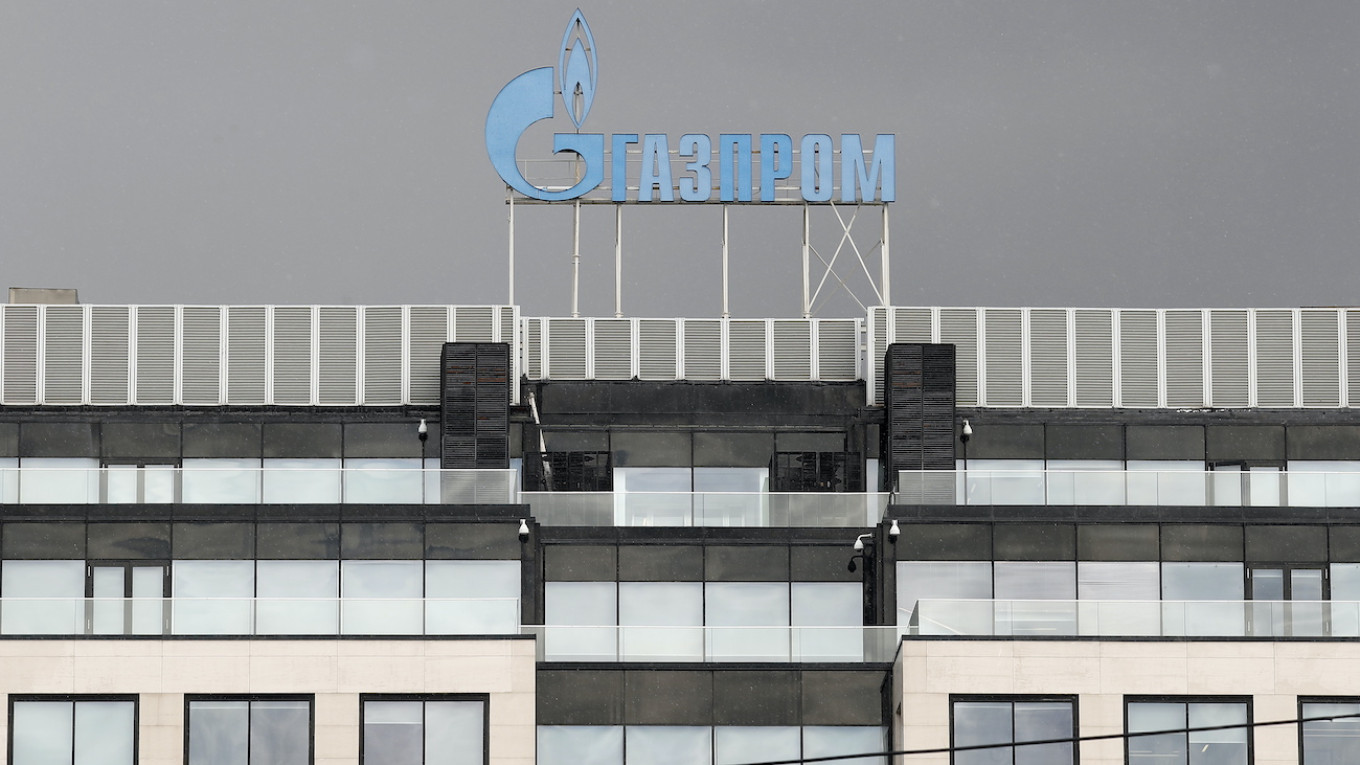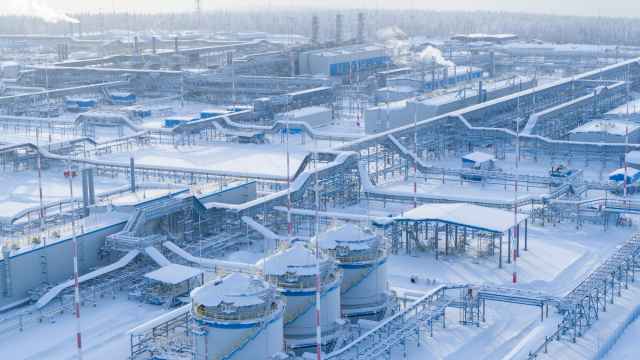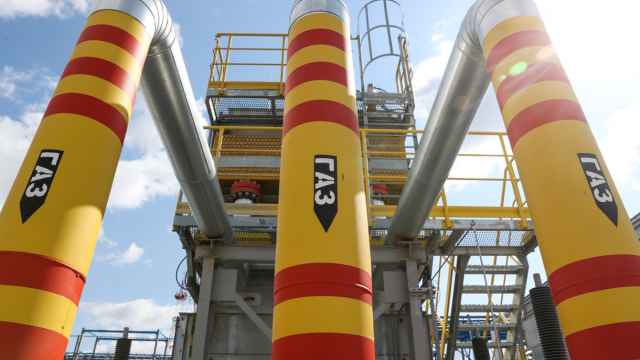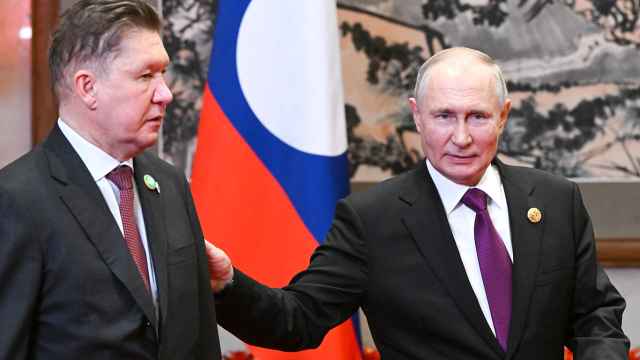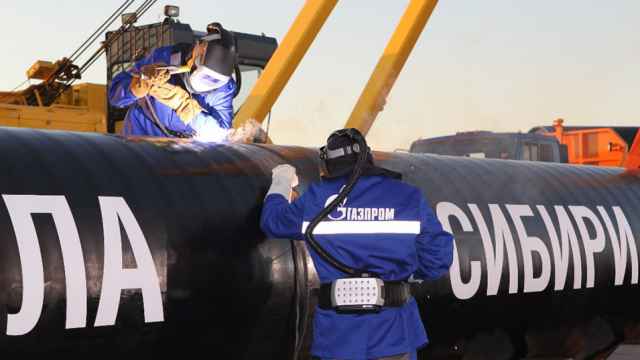Shares of Russian energy giant Gazprom slumped on Tuesday after it announced that it had signed a “legally binding” memorandum with China to advance construction of the long-delayed Power of Siberia 2 pipeline.
Gazprom’s stock closed down 3.1% on the Moscow Exchange at 130.7 rubles, erasing more than 100 billion rubles ($1.2 billion) in market value.
The decline was the steepest among all companies listed on the exchange’s benchmark index, more than doubling the index’s overall drop of 1.4%.
The proposed Power of Siberia 2 pipeline, with an annual capacity of 50 billion cubic meters, has been on the Kremlin’s wish list for nearly two decades. The project has taken on new urgency as Moscow seeks a way to offset the collapse of Gazprom’s once-lucrative sales to Europe.
But investors were quick to note that the deal signed in Beijing was only another memorandum of intent, not a binding supply contract.
Sergei Kaufman, an analyst at the investment firm Finam, warned that the project could weigh on Gazprom’s already strained finances if it does move forward.
The 2,600-kilometer Power of Siberia 2 pipeline is expected to cost the company about 2 trillion rubles ($25 billion, according to spot foreign exchange market data published by Reuters), and China has not committed to provide funding.
Gazprom chief Alexei Miller told reporters in Beijing that price terms would be set later.
Earlier reporting suggested that Beijing sought to commit to only part of the pipeline’s capacity and at heavily discounted Russian domestic rates, which stand at around $120 to $130 per thousand cubic meters, according to energy expert Alexei Gromov.
Moscow, for its part, wants to charge the same rate as it does for the existing Power of Siberia 1 line, currently about $265 to $285 per thousand cubic meters.
That would still represent a roughly 30% discount compared with current European prices.
Industry analyst Mikhail Krutikhin estimated the project’s price tag at around 2 trillion rubles ($24.8 billion) and warned that Russia risked subsidizing Chinese consumers at its own expense.
“Given the enormous costs of pipeline construction and field development, Russia will in fact continue subsidizing Chinese gas consumption to its own detriment,” he said.
For shareholders, the implications are sobering.
Although Gazprom reported 1.2 trillion rubles ($14.8 billion) in net profit last year and nearly 1 trillion rubles ($12.4 billion) in the first half of 2025, its core gas business remains loss-making, with a 1.1-trillion-ruble ($13.6 billion) deficit in 2024.
The company’s cash reserves have dwindled from 2 trillion rubles at the start of 2022 to just over 537 billion rubles ($6.6 billion) by mid-2025.
Some analysts estimate that if supplies via Power of Siberia 1 and an additional Far Eastern route are expanded, Gazprom could eventually deliver more than 100 billion cubic meters of gas to China annually, adding as much as $20 billion to yearly revenue.
But that scenario, they say, remains years away.
“For now, this is just a declaration of intent,” said Igor Sokolov, an analyst at Alor Broker. “If the word ‘memorandum’ had been replaced with ‘contract,’ Gazprom’s share price could have jumped by as much as 20%.”
A Message from The Moscow Times:
Dear readers,
We are facing unprecedented challenges. Russia's Prosecutor General's Office has designated The Moscow Times as an "undesirable" organization, criminalizing our work and putting our staff at risk of prosecution. This follows our earlier unjust labeling as a "foreign agent."
These actions are direct attempts to silence independent journalism in Russia. The authorities claim our work "discredits the decisions of the Russian leadership." We see things differently: we strive to provide accurate, unbiased reporting on Russia.
We, the journalists of The Moscow Times, refuse to be silenced. But to continue our work, we need your help.
Your support, no matter how small, makes a world of difference. If you can, please support us monthly starting from just $2. It's quick to set up, and every contribution makes a significant impact.
By supporting The Moscow Times, you're defending open, independent journalism in the face of repression. Thank you for standing with us.
Remind me later.


